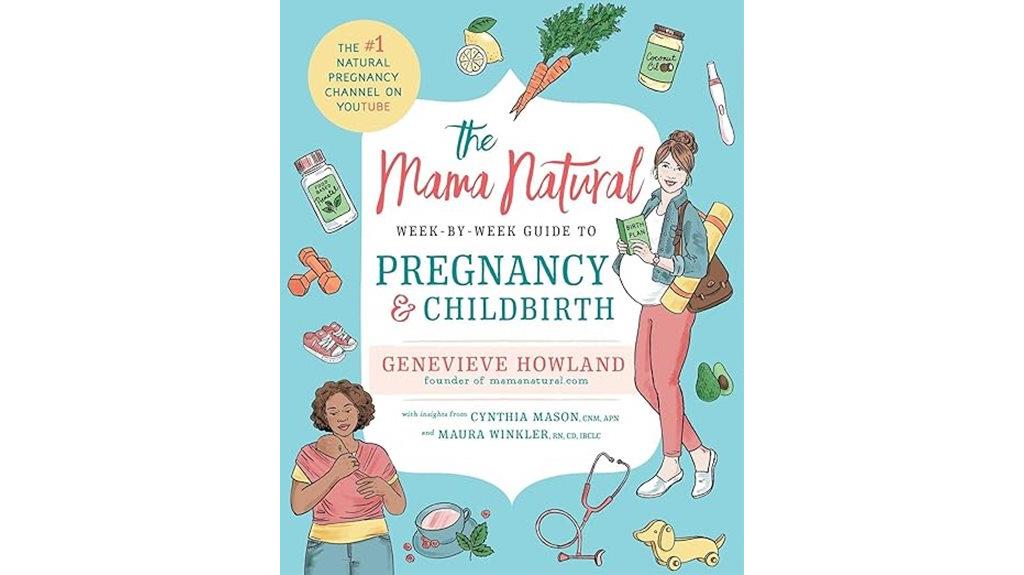As a Black mother-to-be, you're setting out on a powerful journey that deserves support and empowerment. Your maternal health is paramount, and you have the right to advocate for yourself every step of the way. From early prenatal care to postpartum support, understanding your unique needs and risks can make all the difference in ensuring a safe and healthy experience. By equipping yourself with knowledge and resources, you'll be better prepared to navigate the challenges and joys of motherhood. But where do you start, and what specific steps can you take to safeguard your well-being during this transformative time?
Early Prenatal Care Matters

Although many expectant mothers might delay their first prenatal visit, early care is essential for Black women. You should aim to schedule your first appointment as soon as you suspect you're pregnant, ideally within the first trimester. Early prenatal care allows your healthcare provider to identify and address potential risks early on, improving outcomes for both you and your baby.
During these initial visits, you'll undergo important screenings for conditions like gestational diabetes and preeclampsia, which disproportionately affect Black women. Your doctor will also assess your overall health, discuss nutrition, and recommend necessary supplements like folic acid.
Don't hesitate to ask questions or voice concerns during these appointments. Remember, you're your own best advocate. If you feel your concerns aren't being taken seriously, seek a second opinion or consider switching to a culturally competent provider who understands the unique challenges Black mothers face.
Early prenatal care also provides an opportunity to discuss your birth plan, explore pain management options, and learn about potential complications. This knowledge empowers you to make informed decisions throughout your pregnancy, ultimately contributing to a safer and healthier birthing experience.
Advocating for Yourself
Your voice is your most powerful tool in ensuring quality healthcare. As a Black mother, you may face unique challenges in the medical system, making self-advocacy vital.
Don't hesitate to speak up about your concerns, symptoms, or questions during appointments. If you feel dismissed or unheard, request a second opinion or ask to see a different healthcare provider.
Research your condition and treatment options to engage in informed discussions with your medical team. Keep a journal of your symptoms, medications, and questions to bring to appointments.
Bring a trusted friend or family member for support and to help you remember important information. Be assertive in requesting tests or treatments you believe are necessary.
If you experience racial bias or discrimination, report it to the hospital administration or relevant authorities. Connect with support groups or doulas who can offer guidance and empowerment throughout your maternal health journey.
Understanding Pregnancy Risks

While self-advocacy empowers you in healthcare settings, it's equally important to be aware of specific pregnancy risks that disproportionately affect Black mothers. Understanding these risks can help you take proactive steps to protect your health and your baby's well-being.
Black women face higher rates of preeclampsia, a condition characterized by high blood pressure and organ damage. You're also more likely to experience gestational diabetes, which can lead to complications during pregnancy and delivery.
Preterm birth and low birth weight are more prevalent among Black infants, potentially impacting long-term health outcomes.
Be vigilant about symptoms like severe headaches, vision changes, or sudden swelling, which may indicate preeclampsia. Monitor your blood sugar levels regularly if you're at risk for gestational diabetes. Attend all prenatal appointments and discuss any concerns with your healthcare provider.
Stress and racism can contribute to these disparities, so prioritize your mental health. Seek support from family, friends, or support groups specifically for Black mothers.
Nutrition and Exercise Essentials
Fuel your body and baby with the right nutrition and exercise during pregnancy. Focus on a balanced diet rich in fruits, vegetables, whole grains, lean proteins, and healthy fats.
Don't forget to include foods high in folate, iron, and calcium, which are vital for your baby's development. Aim for 300-350 extra calories daily in your second and third trimesters.
Stay hydrated by drinking at least 8-10 glasses of water a day. Avoid raw or undercooked meats, unpasteurized dairy products, and high-mercury fish.
Take a prenatal vitamin as recommended by your healthcare provider to guarantee you're getting essential nutrients.
Exercise regularly, aiming for 150 minutes of moderate-intensity activity per week. Walking, swimming, and prenatal yoga are excellent options.
Listen to your body and adjust your routine as needed. Avoid high-impact activities or exercises that risk falling.
Building a Support Network

Building a strong support network can make all the difference in your pregnancy journey. As a Black mother, it's essential to surround yourself with people who understand and support your unique experiences. Start by identifying trusted family members and friends who can offer emotional support and practical assistance throughout your pregnancy and postpartum period.
Don't hesitate to reach out to other Black mothers in your community or join local support groups specifically for expectant and new mothers of color. These connections can provide valuable insights, shared experiences, and a sense of belonging.
Consider finding a doula who specializes in supporting Black mothers, as they can offer culturally competent care and advocacy during pregnancy, childbirth, and beyond.
Utilize online resources and forums dedicated to Black maternal health, where you can find information and connect with other mothers facing similar challenges.
Remember to communicate openly with your healthcare provider about your concerns and needs. If you're not comfortable with your current provider, don't be afraid to seek a new one who better understands and respects your cultural background and individual needs.
Recognizing Postpartum Depression Signs
Awareness is key when it comes to recognizing postpartum depression signs. As a Black mother, you may face unique stressors that can increase your risk of developing this condition. It's essential to understand the symptoms and seek help promptly.
Watch for persistent feelings of sadness, anxiety, or emptiness that last longer than two weeks after giving birth. You might experience difficulty bonding with your baby, loss of interest in activities you once enjoyed, or changes in appetite and sleep patterns.
Irritability, mood swings, and difficulty concentrating are also common signs.
Physical symptoms can include unexplained aches, pains, or fatigue. Some mothers may have thoughts of harming themselves or their baby – if this occurs, seek immediate medical attention.
Breastfeeding Resources and Support

Numerous breastfeeding resources and support systems are available to Black mothers.
You'll find organizations dedicated to supporting Black women in their breastfeeding journey, such as the Black Mothers' Breastfeeding Association and the African American Breastfeeding Network. These groups offer education, peer support, and culturally tailored resources.
Your local hospital or birthing center likely has lactation consultants who can provide hands-on assistance and advice.
Don't hesitate to ask for their help, especially in the early days of breastfeeding. Many public health departments also offer breastfeeding support services, including home visits and support groups.
Online resources can be invaluable. Websites like KellyMom and La Leche League International offer evidence-based information on breastfeeding.
You'll also find mobile apps that can help you track feedings and connect with other breastfeeding mothers.
If you're returning to work, familiarize yourself with your rights regarding pumping and breastfeeding in the workplace.
The Office on Women's Health provides information on federal laws protecting breastfeeding mothers.
Join The Discussion
What’s been your go-to product or resource during pregnancy or motherhood? Share your favorites and tips to help other Black mothers feel supported, empowered, and prepared on their unique journeys. Together, we can build a stronger community.

Empower your pregnancy journey with these must-have essentials that prioritize comfort, health, and support for Black mothers.






